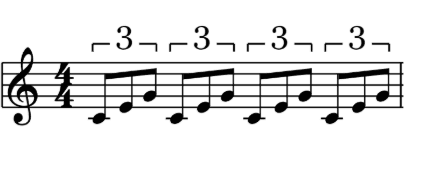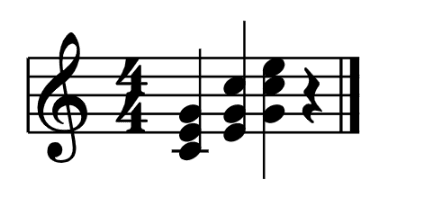Myths about teaching can hold you back
Learn why
Lesson 6 of 11
- Year 9
How might we compose a chord sequence for a 'song for a better world'?
Lesson 6 of 11
- Year 9
How might we compose a chord sequence for a 'song for a better world'?
These resources were made for remote use during the pandemic, not classroom teaching.
Switch to our new teaching resources now - designed by teachers and leading subject experts, and tested in classrooms.
Lesson details
Key learning points
- In this lesson, we will understand how chords can be voiced to ensure smooth (and easier to play) progressions, and also explore different accompaniment styles.
Licence
This content is made available by Oak National Academy Limited and its partners and licensed under Oak’s terms & conditions (Collection 1), except where otherwise stated.
5 Questions
Q1.What is the lowest pitched drum in the drum kit?
What is the lowest pitched drum in the drum kit?
Floor tom
Hi-hat
Q2.How many different sounds can you create on the snare drum?
How many different sounds can you create on the snare drum?
1 - Hit the snare drum in different places.
2 - Hit the snare drum (snare on) - Hit the snare drum (snare off).
Option 4
Q3.How is it possible to identify the style just by hearing the drum beat?
How is it possible to identify the style just by hearing the drum beat?
It is impossible to identify the style from the drums as all songs drum patterns are so different.
You can tell the style from the tempo of the drum beat alone.
Q4.How can you create a drum pattern without a drum kit?
How can you create a drum pattern without a drum kit?
You can notate your drum pattern and play it on your instrument.
You can sing your drum pattern and record it.
Q5.Drum patterns are important because ...
Drum patterns are important because ...
The audience know when to tap their feet.
The drum beat can tell the listener what key the song is in.
6 Questions
Q1.What is a perfect cadence?
What is a perfect cadence?
I-V sounds unfinished
V-vi -Major to minor
Q2.What is an imperfect cadence?
What is an imperfect cadence?
V-I - sounds finished
V-vi -Major to minor
Q3.What is an interrupted cadence?
What is an interrupted cadence?
I-V sounds unfinished
V-I - sounds finished
Q4.What accompaniment style is the following an example of?
What accompaniment style is the following an example of?

Inversion
Melodic passing notes
Q5.What accompaniment style is the following an example of?
What accompaniment style is the following an example of?

Broken chords
Melodic passing notes
Q6.What accompaniment style is the following an example of?
What accompaniment style is the following an example of?

Broken chords
Inversion

